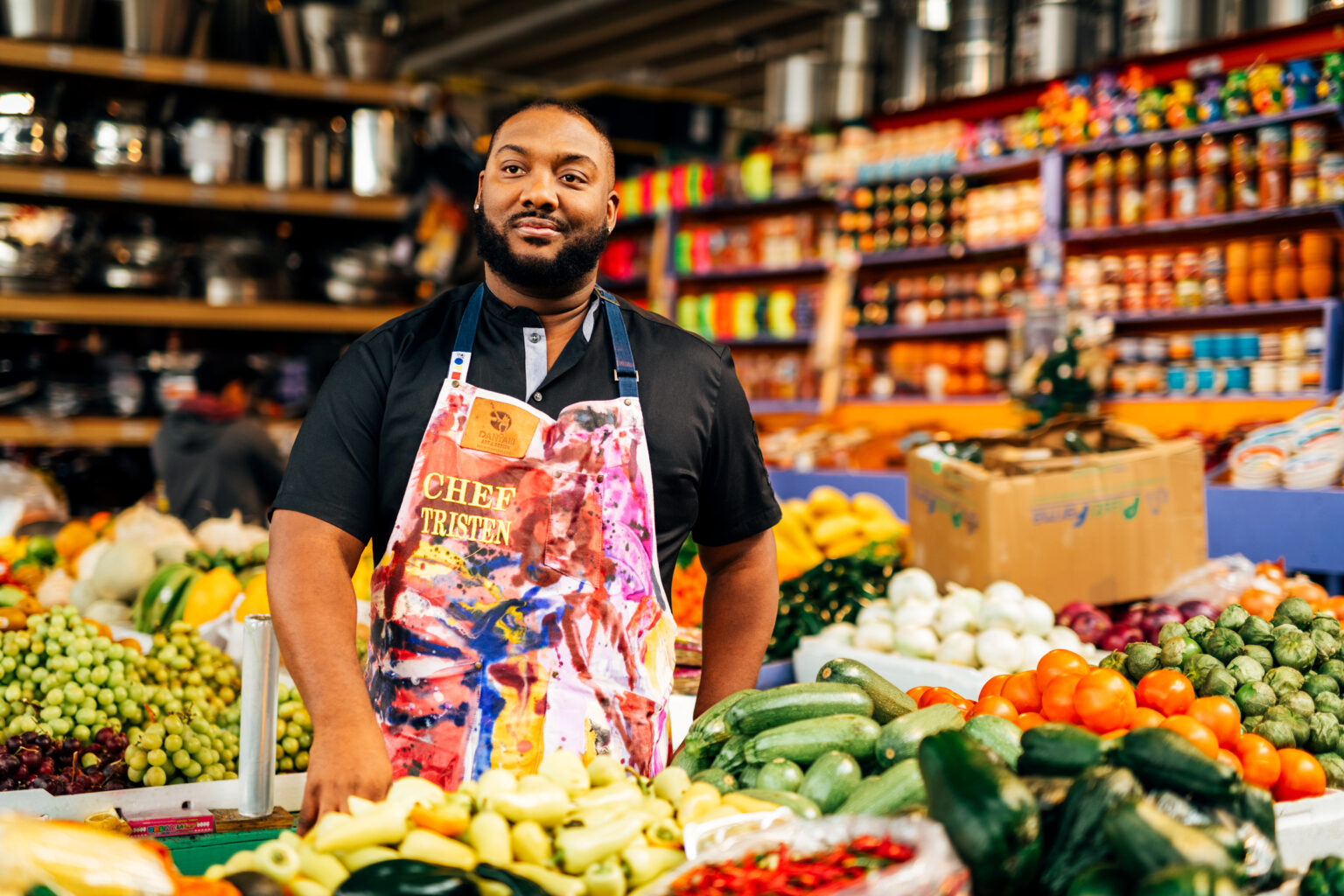Emotions swept across the face of an Afro-Caribbean cuisine master when his name was announced on the June 12 finale of Bravo’s “Top Chef: Destination Canada.” Houston’s Tristen Epps-Long felt the presence of his late stepfather, his family, and legion of supporters in Milan the moment the judges declared him the competition’s Top Chef.
“I feel a little validated. I feel extremely proud of everyone else who supported me. I have never looked at the title of Top Chef as a singular person,” says Epps-Long. “I didn’t get there by myself. In the end, Top Chef just means Top Chef in friends, Top Chef in community and Top Chef in support. I wish every face that has supported me could be right next to me every time my picture comes up.”
Trinidadian American Heritage Shines in Milan
The Virginia native of Trinidadian heritage traveled many thousands of miles in his culinary journey to the Top Chef finale in Italy. Epps-Long took on two formidable opponents in the final faceoff.
He and the two other finalists had to conceive and cook the best four-course progressive dinner of their lives. Epps-Long’s determination to win for his mother and other supporters increased tenfold with the death of his beloved stepfather. Patricia Lynch Epps urged her son to stay in Canada and make his dad proud.
“I knew she needed support, and I knew she needed people there, but she said stay because that is what he would say for you to do,” Epps-Long recalls. His mom also told him, “If you are going to feel bad for not being here, make it worth it.”
The stroke that took his father’s life in September happened in the middle of the “Restaurant Wars” taping. Epps-Long shouldered his grief and as team captain, led the way to victory in that strenuous elimination round.
His voice broke with feeling as he talked to the judges about his father’s death. The show’s most touching moment came later in Milan when the judges named Epps-Longs the Top Chef. He called his mom with tears flowing down his face.
“It was an amazing thing to tell her. Up until that point, it was hard to have conversations with her, with her grieving. Her not wanting to distract me anymore and me just wanting to be there for her,” states Season 22’s winner.
Throughout the competition, the Houston chef focused on telling his story of cooking Afro-Caribbean cuisine, influenced by his knowledge of global cuisines. From the start, his exceptional culinary skills, creativity and flavor-packed dishes wowed the judges, winning Epps-Long two Quickfire and five Elimination Challenges, including the finale.
“At first, it was validation of culture and validation of the cuisine. That never wavered,” he replies. “When restaurant wars came on, I had to take a step back and say, ‘Okay, I am doing fine. I am doing well. Now that this has happened, I need to ensure myself going forward.”
Long-time mentor and friend Marcus Samuelsson had advised the chef to pace himself and not try to outdo all 14 of his competitors at once. Chef Epps-Long had only known how to give 100% in each culinary test, but his father’s passing changed his approach to winning the Top Chef title.
“That’s when I started planning for the end rather than planning for the next day. I was coming more from emotion rather than intelligence at that point. In the end, it was just an amazing feeling to hear my name and be overcome with emotion. I feel like I validated both of us,” says the chef.
Epps-Long traveled back to the U.S. for his dad’s funeral before returning to Milan for the show finale with the obituary in his pocket. He had already won $40,000 in the challenges before claiming the grand prize of $250,000 and a Delta Sky Miles Diamond Medallion Status worth $125,000.
By Phyllis Armstrong


